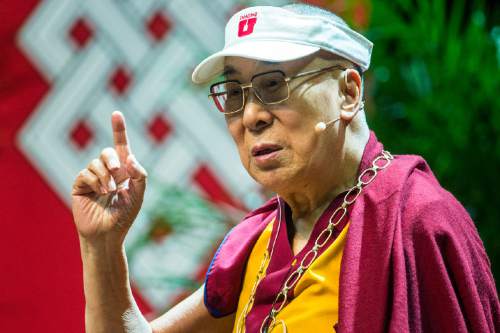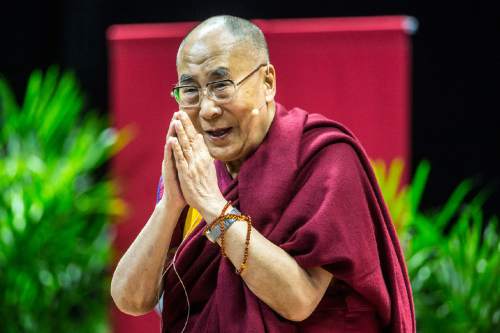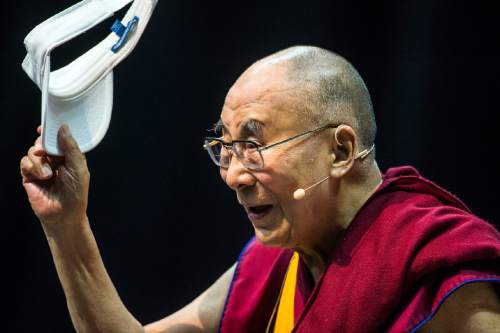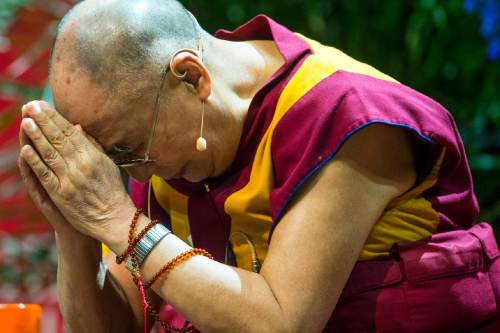This is an archived article that was published on sltrib.com in 2016, and information in the article may be outdated. It is provided only for personal research purposes and may not be reprinted.
The Dalai Lama captivated thousands of Utahns this week with his speech Tuesday at the Huntsman Center, emphasizing the power of individuals in bringing about change and pointing out that actions, more than prayer, can lead to global peace.
But the Tibetan Buddhist leader touched on many more topics — from the afterlife to Chinese relations and the value of science — during a question-and-answer session. Here are some of his responses:
• What does he say about the afterlife to a man whose father committed suicide?
"That is sufficient reason to feel sad, but then think that sadness will not bring your father back," he said. "Now you should work hard and make an effort to fulfill your late father's wish, and somehow he will know of your condition."
• What happens after death?
That, he said, is "a more complicated question." In some Indian traditions, including Hinduism and Buddhism, there is no central authority as creator, "just self-creation," he said. "Actions bring positive or negative results or karma. … Basically the life continues, no beginning or end until people reach nirvana," akin to enlightenment, and escape from the cycle.
• What is the most effective approach to climate change?
"I don't know," he said. "Ask some specialist."
• What role does scientific education play in universal responsibility?
"I especially like scientific research that involves the brain," he said. " … Such research is now showing interest in the nature of compassion — love — based on the oneness of the individual ... and how anger and fear destroy the mind and the physical health."
The Dalai Lama said he has had many discussions with scientists who are "neutral and unbiased — so that's a true scientist — that mental attitude is very necessary to further research or knowledge. … There is no progress without investigation. Your mind must be open. It is also necessary to have skepticism. That brings questions and questions bring an effort to find any answer. … If you are contented, if you feel 'I know everything,' then no further progress."
" ... I am nearly 81, but I consider myself still a student," said the Nobel Peace Prize laureate.
• Will he ever return to Tibet?
Nine years after the Chinese took over Tibet in 1950, the Dalai Lama fled to India with a small party of his associates. He has lived in exile for more than five decades, he said Tuesday, and most of the people with his group are either dead or too old to travel.
"I don't know if they will see Tibet or not," he said, "but most of us feel that one day will come when we meet back home."
China, of course, sees Tibet as part of its sovereign territory and has opposed any move toward independence, which the Dalai Lama also has given up. But the Tibetan leader hopes China will allow the Tibetans to continue their traditions and culture.
"I feel for their own [Chinese] future and for society," he said, "if they don't change."
Younger Chinese who travel, study, tour or do business outside the country are more open, he said. "If you have an opportunity to meet them, tell them the reality."
He was, he said, "optimistic."
Peggy Fletcher Stack









